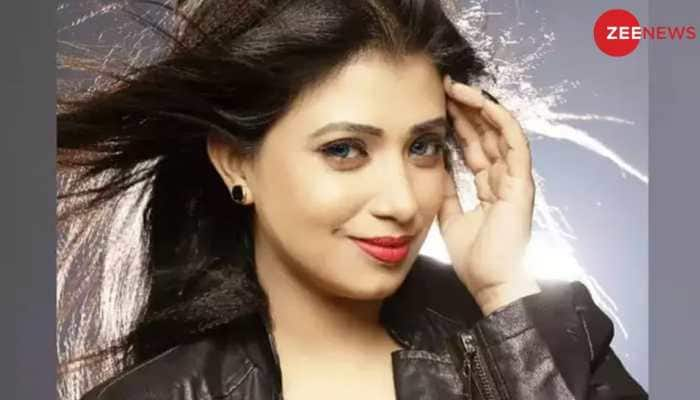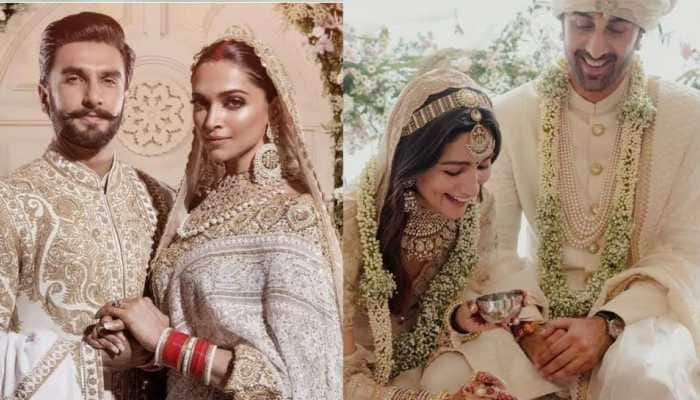SC Hearing On Same-Sex Marriage: 'Will Not Allow Anyone To Dictate Proceedings', CJI Chandrachud Fumes At Centre
The Supreme Court began hearing arguments on a batch of petitions seeking legal recognition of same-sex marriages on Tuesday.
Trending Photos
)
New Delhi: The Supreme Court on Tuesday began hearing arguments on a batch of petitions seeking legal recognition of same-sex marriages, an issue with far-reaching societal implications and sharply divided opinion. A five-judge Constitution bench consisting of Chief Justice D Y Chandrachud and Justices S K Kaul, S R Bhat, Hima Kohli, and P S Narasimha is hearing the case. On March 13, the Supreme Court referred the petitions to a five-judge Constitution bench for adjudication, calling it a "very seminal issue." The court proceedings began with intense arguments between CJI Chandrachud, Justice Kaul and Solicitor General Tushar Mehta, who was representing the Centre.
During the argument, SG Tushar Mehta said that his preliminary objections against the maintainability of the petitions seeking same-sex marriage should be decided first and added that all states should be issued notices before a decision is made by the top court.
SG Mehta said that 'five brilliant and learned individuals' cannot decide for the entire nation and create a 'new socio-legal relationship' within the institution of marriage.
Replying to Mehta's submission, CJI Chandrachud said 'let us first hear the facts of the case'.
"I am in command. I'll make the decision... We'll start with the petitioners. Nobody will be able to tell me how the proceedings in this court will go," the CJI told Mehta.
During the hearing, Mehta said that there is a legislative intent that a marriage can only happen between a biological man and a biological woman, including Special Marriage Act.
CJI Chandrachud told Mehta, "Very important judgement you are making. That very notion of a biological man is absolute and the notion of biological woman is also absolute..."
Mehta said a biological man is a biological man and it is not a notion.
The CJI said, "There is no absolute concept of a man or a woman at all...it cannot be the definition of what your genitals are, it is far more complex. Even when the Special Marriage Act (SMA) says man and woman, the very notion of a man and notion of a woman is not an absolute, based on what genitals you have...."
Mehta submitted that the institution of marriage affects personal laws, Hindu Marriage Act is a codified personal law and Islam has their own personal law, and part of them is not codified. The bench - comprising justices Sanjay Kishan Kaul, S. Ravindra Bhat, Hima Kohli, and P.S. Narasimha -- replied that it is not getting into personal laws.
Here's what happened during the SC hearing on same-sex marriage
CJI Chandrachud: There is no such thing as an absolute concept of a man or an absolute concept of a woman.
It's not a matter of what your genitals are. That's the point: it's far more complicated. Even when the Special Marriage Act refers to a man and a woman, the concept of a man and a woman is not an absolute based on genitals.
Biological man is a man who has biological genitals. I didn't want to use that phrase.
Solicitor General Tushar Mehta: There is no concept of biological man.
CJI Chandrachud: The concept of biological man is absolute and inherent.
Solicitor General Tushar Mehta: My submission is that the legislative intent throughout the Special Marriage Act has been a relationship between a biological male and a biological female.
CJI Chandrachud: We're taking a middle path.
SG Mehta: Then we're short-circuiting the problem. I'm saying, don't hear it at all.
Judith Kaul: We are not going into personal laws, and now you want us to, why? How can you expect us to decide? We are not obligated to hear everything.
SG Mehta: Hindus and Muslims will be impacted, which is why states must be heard.
SG Mehta tells that there is no legal lacuna in the Transgender Persons (Protection of Rights) Act and the question is not of granting a socio-legal sanction. He apprises the court that it has been clarified that none will discriminate against transgender persons. There are provisions of reservation for transgender, he adds.
CJI DY Chandrachud: So we've stated what the bench is going to look at.
Justice Kaul: So can we define man and woman as persons in the special marriage act and leave the rest for another day?
Sr Adv Singhvi: Yes, sections 5 to 10 of the SMA have the opposite effect that they were intended to have.
CJI Chandrachud: Even in heterosexual marriages, a notice inviting objections to the marriage is unconstitutional.
Sr Adv Singhvi: Nobody is arguing about personal laws. Then there's the issue of state intervention... this court is interpreting the Special Marriage Act... the notice requirement must be overturned.
Sr Adv Singhvi: Adoption, in my opinion, is critical. So, even if the court rules that same-sex marriage is legal, such a right is a hollow shell. One is heterosexual marriage, and the other is homosexual marriage... so one criterion is based on sex... and if the court rules that same sex marriage is valid... that does not mean that people of all shades are included... the correct position will be to allow marriage between two consenting adults.
Sr Adv Singhvi: On the canvas there are two crucial words here marriage and persons. There are two categories of consequences.. one is minor and major consequences of marriage.. marriage has to have some consequential benefits.. even in this limited canvas the bench must travel a little further.
Senior Advocate AM Singhvi Starts Arguments
Sr Adv Mukul Rohatgi: Nothing has to be struck down, and we are in the process of evolution... and the word husband and wife be read as spouse in the special marriage act.. concept of marriage has changed in the last 100 years.. there was group marriage, child marriage, temporary marriage... all of this has changed... new avatar of hindu marriage act was also rejected.
CJI Chandrachud: Assuming you want a declaration that gay people have the right to marry, what comes next? Do you want the special marriage act to include it?
Sr Adv Mukul Rohatgi: We cherish and desire the same institution as marriage because it is respected in society. We seek a declaration that we have a right to marry.. that right will be recognised by the state as under special marriage act and the marriage will be recognised by the state after declaration of this court.. because even now we are stigmatised and even if we are holding hands and walking.. even after 377 judgement.
Rohatgi: We are persons of the same sex and we have the same rights as heterosexual groups in society. This has been held so, and we do not need to reinvent the wheel. The only stumbling block was Section 377, which made our actions criminal, and it is now gone... the unnatural part is erased from the statute book, and our rights are equal, as reflected in Puttuswamy, navtej johar etc.. and if our rights are identical and then we should enjoy full array of rights as under Articles 14, 15 and 21.
Justice Kaul: It does not look good that the government says it will see if they will participate in the hearing or not; this is a critical issue.
CJI: Aside from the adjournment, we will consider any request.
SG Mehta: None of us know what a farmer in south India or a businessman in north India thinks.
Justice Kaul: Are you saying that the government will not attend the hearing?
SG Mehta: If that is the case, let us take some time to determine whether the government should participate in this hearing.
CJI: I am in command. I'll make the decision... we'll start with the petitioners. Nobody will be able to tell me how the proceedings in this court will go.
Let them (petitioners) respond to our preliminary submissions, says SG Mehta.
CJI: Let us first hear the facts of the case.
SG Mehta: My submissions are only to determine which forum should be the sole constitutional forum capable of adjudicating this issue. We will not address the merits of the case while raising this preliminary issue.
"Personal laws, adoptions, inheritance, and maintenance are all issues," says Senior Advocate Kapil Sibal.
Justice SK Kaul: Not that we aren't aware. You are correct... but let us look at the canvas to see what is and is not opening up.
CJI DY Chandrachud: The tenability of your submission will be determined by the petitioners' submissions. We must examine the merits of the arguments. It will not be forgotten, and we will hear you at a later stage. We need a picture in the first 15 to 20 minutes. Let us first hear from the petitioners. We cannot anticipate petitioners' submissions.
Senior advocate Kapil Sibal says states should be heard in the case.
CJI DY Chandrachud says we will hear the Centre's submission on that at a subsequent stage.
He says the debate which is to happen is about the creation or conferring of the socio-legal institution and whether it should be done by the forum of the court or parliament.
Solicitor General Tushar Mehta informs the Supreme Court that the Centre has filed a petition raising a preliminary objection to the plea's maintainability.







)
)
)
)
)
)
)
)
)
)
